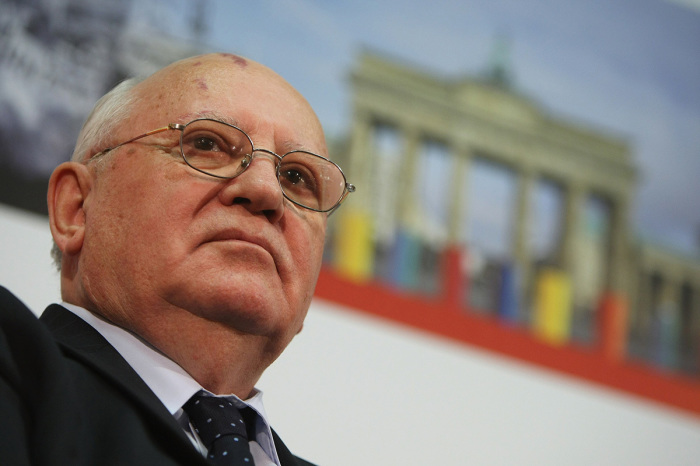Franklin Graham pays tribute to Mikhail Gorbachev: ‘Grateful’ for former Soviet Union leader

Prominent American Evangelical Christian leader, the Rev. Franklin Graham, paid tribute to former Soviet Union leader Mikhail Gorbachev, who died on Tuesday at 91, recognizing his pivotal role in history.
In a post on his official Facebook account, Graham noted that Gorbachev “played a critical role, along with U.S. President Ronald Reagan, in bringing down the Iron Curtain and ending the Cold War.”
“President Reagan stood in West Berlin and said, ‘Mr. Gorbachev, tear down this wall …’ and within a couple of years that happened,” wrote Graham.
Graham also recounted how his father, the late evangelist Rev. Billy Graham, had first met Gorbachev in 1987 at the White House and later visited the Soviet Union in 1991.
“My father … visited with him at the Kremlin to discuss moral issues and the need for spiritual values in society,” Graham continued.
“At the time, my father was in Moscow to lead a School of Evangelism and to prepare to preach in the city, and he thought it was important to express his appreciation for Mr. Gorbachev’s support of religious freedom in Russia.”
Graham went on to note that while he felt Gorbachev “certainly made his mistakes,” he believed the Russian leader still did a lot of good for his country, especially regarding religious liberty.
“I am grateful for all that he did to end the Cold War peacefully and that he helped allow churches in Russia to worship freely — opening up incredible opportunities for the Gospel in that part of the world,” Graham added.
In a statement, the Reagan Foundation and Institute said they "mourn the loss of former Soviet leader Mikhail Gorbachev, a man who once was a political adversary of Ronald Reagan’s who ended up becoming a friend."
The statement added: "President Reagan was a devoted anti-communist who was never afraid to say what needed to be said or do what needed to be done to bring freedom to people who were living under repressive regimes. It was General Secretary Gorbachev with whom President Reagan would finally have that long-sought opportunity to form a relationship which led to a lessening of tensions between Washington and Moscow, and eventually to meaningful arms reduction."
The Reagan Library and Foundation also shared condolences on social media, alongside historic photographs of the two world leaders.
President Joe Biden also offered his condolences, calling Gorbachev “a man of remarkable vision” who had “the imagination to see that a different future was possible and the courage to risk his entire career to achieve it.”
“When Mr. Gorbachev visited the White House in 2009, he and I spoke for a long time about our countries’ ongoing work to reduce U.S. and Russian nuclear stockpiles. It was easy to see why so many worldwide held him in such high esteem,” stated Biden.
“We send our deepest condolences to his family and friends, and to people everywhere who benefited from his belief in a better world.”
Born in a small village in 1931, Gorbachev officially joined the Communist Party in 1952 and became the youngest member of the USSR’s Politburo in 1980.
After becoming leader of the Soviet Union in 1985, Gorbachev pursued various reform measures, including “glasnost” (openness) and “perestroika” (change).
His largely successful efforts to ease tensions between the Soviet Union and Western nations led to his receiving the Nobel Peace Prize in 1990, the year before the USSR collapsed.
“Society was liberalized, and Gorbachev sought détente with the USA so as to be able to transfer funding from defense to civil society,” noted Nobel’s biography of Gorbachev.
“He declared that he would not support Communist regimes in other countries if their peoples were opposed to them. He thus started a chain reaction which led to the fall of communism in Europe.”



























